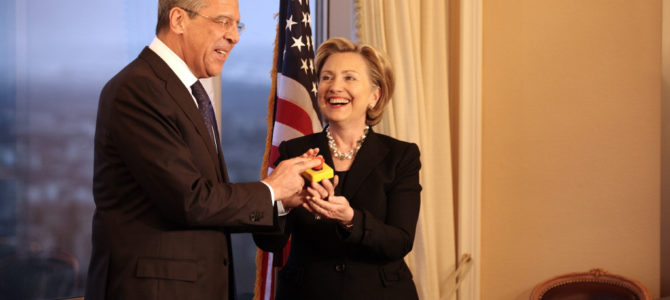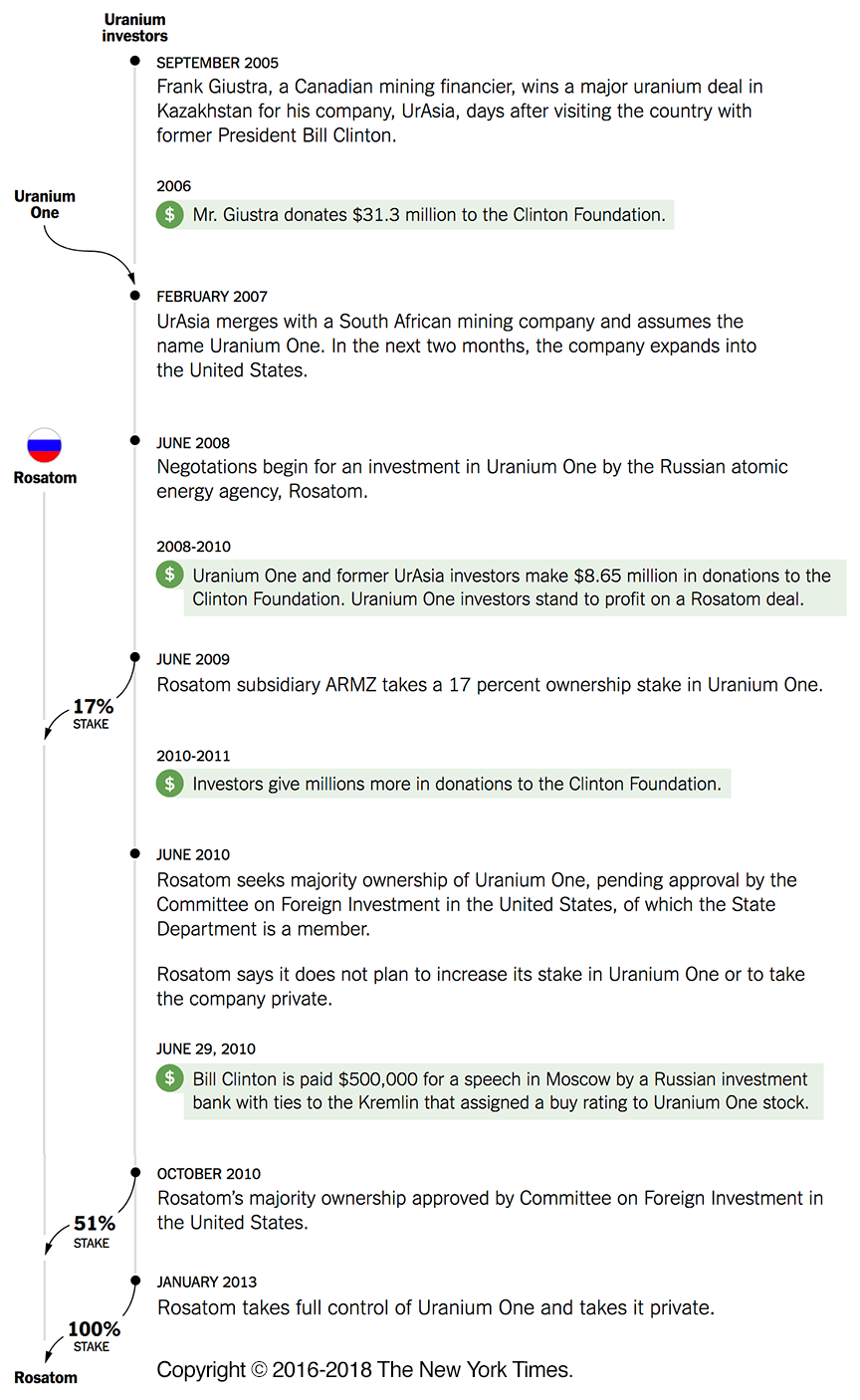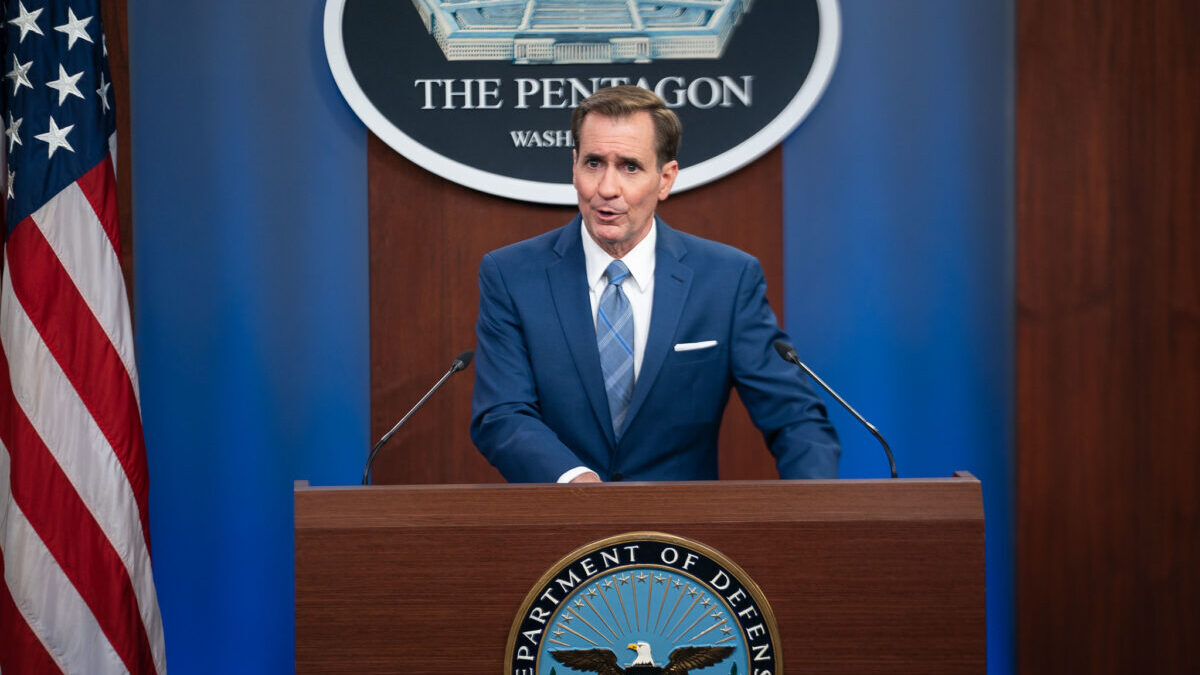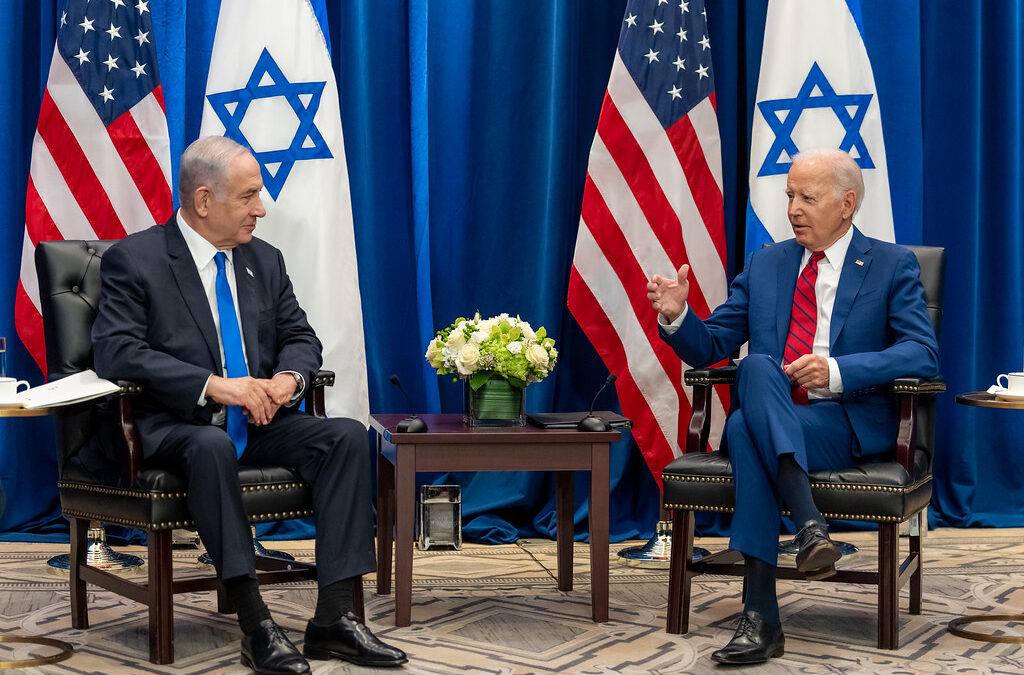
In 2013, Russia’s state-run uranium monopoly, Rosatom, purchased a Canadian mining company, Uranium One, in which it had previously held a controlling interest. Uranium One owns a controlling interest in other global uranium companies, whose owners have donated hundreds of millions of dollars to Bill and Hillary Clinton’s Clinton Foundation, with pledges of millions more.
Uranium is a highly sensitive material key to nuclear weapons, and the Uranium One sale was approved by various Obama administration agencies, including the U.S. State Department then headed by Hillary Clinton. In 2017, the U.S. House Intelligence Committee opened an investigation into Russia’s purchase of Uranium One following New York Times reports that Russian business people with close financial ties to Uranium One donated millions to the Clinton Foundation before and after the sale.
In October, President Trump directed the U.S. Department of Justice to release an informant from a nondisclosure agreement he had signed regarding a “bribery and extortion” scheme inside a U.S. branch of Rosatom during its acquisition of Uranium One, Reuters reported last month. On Monday, The Hill reported that prosecutors did not interview the informant, lobbyist William Campbell, “in the FBI’s Russian nuclear bribery case before it filed criminal charges in the case in 2014. And the prosecutors did not let a grand jury hear from the paid informant before it handed up an indictment portraying him as a ‘victim’ of the Russian corruption scheme or fully review his extensive trove of documents until months later, the officials confirmed.”
More:
Justice Department officials began briefing Congress last week, divulging missteps in a case that nonetheless proved the Russian state-owned Rosatom was engaged in criminal activity through its top American executive beginning in 2009, well before the Obama administration made a series of favorable decisions benefitting Moscow’s nuclear giant.
Multiple House and Senate committees already are investigating whether the FBI alerted President Obama or his top aides to the Russian criminal activity and plan to interview the undercover informant soon.
The new revelations, however, could tip some scrutiny toward federal prosecutors’ own conduct in the case, a sensitive topic since Rosenstein [whose office failed to interview Campbell in 2014] is now Justice’s No. 2 official and the supervisor of the special counsel investigation into Russian election tampering.
The deal gave Uranium One, and thus Russia, access to 20 percent of the U.S. uranium market. That’s problematic for two reasons: 1. The United States has to import uranium because it can’t produce enough on its own; and 2. It suggests a potentially serious breach of national security, possibly greased by corruption. The agreement enabled the Clintons to reap a financial windfall for their foundation and Bill personally.
It will take months, if not years, for key information in this case to be uncovered. For now, here’s an overview of what we know and what that suggests has been going on in this massive global corruption case that potentially implicates the very U.S. presidential candidate who projected similar nefarious activities onto her opponent.
About the Uranium One Deal
In 2005 Vladimir Putin launched a quest to increase the Russian State Atomic Energy Corporation (Rosatom’s) control of uranium worldwide. According to Casey Research, “Among other things, [Putin] is working to corner the uranium market – his country already controls 40% of global uranium enrichment capacity, the lion’s share of the world’s downblending facilities, and a fair chunk of the world’s uranium resources.”
As part of Putin’s plan, Rosatom, which he backs, planned to find a way to own uranium produced inside the United States. Under the tenets of the deal, Rosatom was allowed to buy a controlling interest in Uranium One, a Canadian company, which just happened to have contracts to mine uranium here in the United States. Specifically, it owns 20 percent of our uranium.
While the U.S. uranium that Uranium One mined was to be sold only to U.S. companies, it hasn’t been—not all of it, anyway. The New York Times reports that some of our uranium has been exported.
“Asked about [where it has gone, the Nuclear Regulatory] commission confirmed that Uranium One has, in fact, shipped yellowcake to Canada even though it does not have an export license. A commission spokesman said that ‘to the best of our knowledge’ most of the uranium sent to Canada for processing was returned for use in the United States. [But] A Uranium One spokeswoman, Donna Wichers, said 25 percent had gone to Western Europe and Japan.”
Sources aren’t certain where the yellowcake has actually gone, a chilling potential national security threat.
When it came time to approve the deal, nine Obama administration departments gave it a green light, and the U.S. Committee on Foreign Investment (CFIUS) gave it final approval. Among the nine people sitting on the CFIUS board were then secretary of state Hillary Clinton and attorney general Eric Holder. Both approved the agreement, and were likely to know of the FBI’s investigation into significant corruption in which U.S.-based Russian industry officials were engaged to obtain an interest in our uranium.
Once the deal was consummated, it gave the United States nothing tangible, but was endorsed by the Obama administration to advance Obama and Hillary Clinton’s flawed “Russian Reset” policy, according to The New York Post.
Then What Looks Like Corruption and a Coverup
The proof of the malfeasance involved in this deal may well rest with Campbell, an eyewitness to the Rosatom corruption and possibly the Clintons’ roles. It should have prevented the deal from ever coming to fruition. According to John Solomon and Alison Spann of The Hill, back in 2007 Russian nuclear officials here in the United States working for Rosatom were heavily engaged in extortion, bribery, kickbacks, and money laundering. Their mission was to do whatever it took to enable Putin to access U.S. uranium.
Reuters reports that Campbell was lobbying for the Russian oil industry at the time. According to his attorney, Victoria Toensing, he informed the FBI about what was occurring as early as 2008. The bureau made him a confidential informant (CI), put a wire on him, and sent him back into the cesspool. There he, with FBI permission, paid bribes himself and collected a trove of incriminating documents, emails, audio, and video evidence.
Sara Carter of Circa News interviewed Toensing, who explained, “My client was providing information for a couple years [to the FBI] before [the Uranium One deal] really got voted on by CFIUS, and here’s the rub. High-ranking law enforcement officials in the Obama Administration knew that there was corruption in this company and that information about the corruption in this Russian entity never made it to CFIUS, evidently, because CFIUS authorized the purchase in 2010.”
But Campbell’s desire to tell Congress what he knew before the agreement was signed met threats from the Obama Justice Department and the FBI, his attorney says. When his undercover work was over, he was made to sign a nondisclosure agreement, which is highly irregular for a confidential informant, according to Toensing. It barred him from disclosing anything about the case. Toensing told Circa News, “[My client] is not only afraid of the Russian people, but he is afraid of the U.S. government because of the threats the Obama administration made against him.”
The threats were leveled, Toensing said, when Campbell sued the government to be reimbursed for money he had paid out of pocket for bribes made at the FBI’s direction. The informant’s lawyer at the time was called by the Justice Department and Rod Rosenstein, Toensing told Fox News. The FBI and Rosenstein, who was U.S. attorney for Maryland at the time and overseeing the prosecution of the Russians, warned Campbell to drop his case, or his “reputation and liberty would be at stake,” Toensing says. Sounds like some U.S. agencies, or people in charge of them, really wanted this Uranium One deal to go through.
The news of Campbell’s existence and the evidence he promises to disclose are contributing to a seismic shift in the Trump-Russia collusion narrative. It could be devastating not only to the Clintons, but the Obama administration as well.
Peter Schweizer, author of “Clinton Cash,” told Fox News about one particularly damaging audiotape Campbell recorded. Schweizer alleges, “I’ve heard about the tape from people at the FBI, and that audiotape apparently is Russian officials with this uranium company talking about making donations to the Clinton Foundation to gain favorable action.” When asked by Fox News about the tape, Toensing acknowledged that it exists, but declined to reveal what was on it.
How the Clintons Benefitted From the Uranium One Deal
The New York Times published an inclusive timeline (see chart below) detailing how a Clinton crony, Canadian mining financier Frank Giustra, and others involved in the Uranium One deal donated tens of millions to the Clinton Foundation starting in 2006.

The story begins in 2005, when Bill Clinton and Giustra visited Kazakhstan. While there, Clinton made some introductions and Giustra inked a lucrative mining deal for his company, UrAsia. The New York Times reports that in 2007, Giustra merged his company, UrAsia, with Uranium One, then a South African mining company. Because Giustra was Canadian, Uranium One was moved to Canada and later obtained uranium mining right in the United States.
The Kazakhstan deal was extremely lucrative for Giustra. He and others, such as Ian Telfer, who according to The New York Times served as Uranium One’s chairman, donated substantial amounts to the Clinton Foundation. In an interview with Tucker Carlson of Fox News, Schweizer says, “As this deal was coming for approval in 2010, the Clinton Foundation received [donations] from nine shareholders in this uranium company that was sold to the Russians. None of them all of a sudden decided they were going to donate large amounts of money to the Clinton Foundation, more than $145 million. And by the way, a lot of those donations were never declared publicly by the Clintons, they were hidden.”
Schweizer’s obvious implication is that the donations were a quid pro quo or pay-to-play kickback to the Clintons for Bill’s help in cinching the Kazakh deal for Giustra and promoting Russia’s purchase of Uranium One.
But it didn’t end there. The Hill reports that in 2010 Bill Clinton, who had petitioned the State Department to conduct meetings with oligarchs in the Russian nuclear industry, met instead with Vladimir Putin himself. Fox News reports that a bank, Renaissance Capital, paid Clinton $500,000—twice his usual fee—to give a speech in Moscow. According to Bloomberg, the speech occurred after Rosatom made known its interest in Uranium One, and that Renaissance Capital actively promoted Uranium One to potential investors.
It also had an ownership stake in the company. Clinton’s $500,000 speech delivered to a bank with a vested interest in Uranium One, his desire to talk to Russian nuclear oligarchs, and meeting with Putin certainly suggest he played a key role in making the Uranium One deal happen. If that can be proven, a number of laws have been broken, and Hillary, also caught in major conflicts of interest with national security implications, should have recused herself from CIFUS and voting on the Uranium One agreement.
The investigations into this deal, the Clinton Foundation, and the FBI’s handling of Hillary Clinton’s email case are about to be front and center in Washington. Much of what happens next will come from Campbell. His appearance before Congress could prove toxic not only to the Clintons, but the Obama administration as well.









